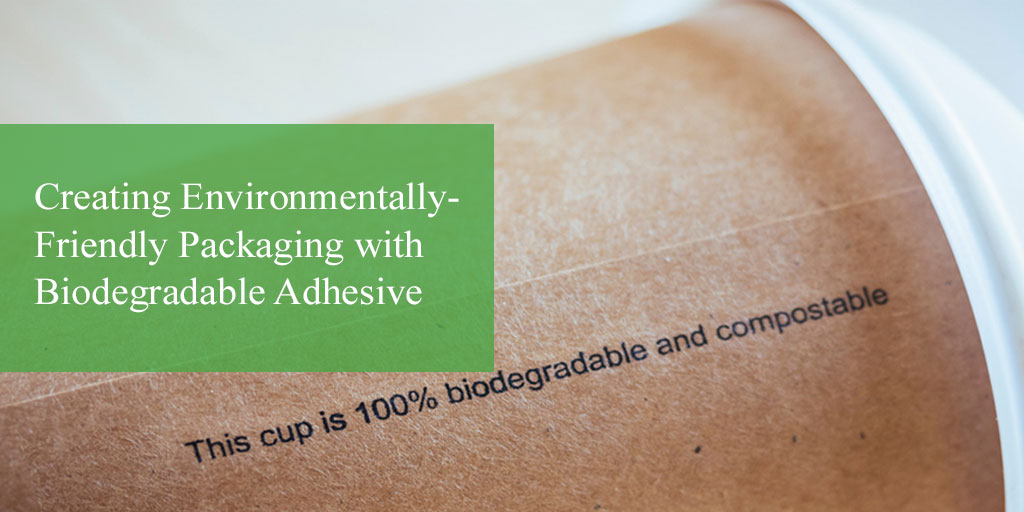The rising demands for more eco-friendly packaging and products have sparked a growing interest in plastic-free adhesives. As we all strive to contribute to a greener planet, taking time to consider the adhesives that make our packaging, labeling, and lamination processes possible can make a big difference.
Benefits of Using Biodegradable Glue
On top of sustainability, using a more eco-friendly glue rather than a plastic-based adhesive can have the following positive impacts:
- Eliminates microplastics: Adhesives like natural glue are made from biodegradable materials and do not pollute landfills or waterways with microscopic plastic bits.
- Reduces waste processing and recycling costs: Plastic-free adhesives break down, which makes waste processing and recycling paper products like cardboard faster and more efficient. Using plastic-free glue prevents old adhesive from contaminating recycled cardboard and diverts plastic from landfills, rivers, and oceans.
- Improves your environmental standards: Many countries are looking into the impact of plastics in packaging and are putting acts in place to protect the environment. By choosing a plastic-free glue, you are ensuring your company stays future-proof and are potentially gearing your production to be certified as eco-friendly.
- Appeals to eco-conscious consumers: Now more than ever, being a leader in green packaging not only makes your company stand out but can cement brand loyalty with customers with environmental concerns.
Why Make the Switch to Plastic-Free Glue?
Plastic glues are popular in packaging, especially for paper products. However, many manufacturers are starting to consider alternatives like natural glue. Natural protein-based adhesives are 100% hydro-palpable and are sourced from recycled materials, mostly pharmaceutical netting.
Natural glue consists of polyamide of alpha-amino acids and is highly water-soluble, which is excellent for creating greener packaging. Manufacturers who focus on laminating, rigid boxes, bookbinding, case and carton sealing, and assembling products have had great success with incorporating natural glue into their production.
New Standards on the Horizon: The Biodegradable Products Institute
Communities, organizations, and lawmakers are working together to reduce the effects of plastic and develop eco-friendly packaging. For example, individual states are starting to create more comprehensive labeling requirements on compostable products to increase manufacturers' accountability and reduce pollution.
Washington State recently passed a piece of legislation that others are soon likely to follow. The governor of Washington is forbidding terms like "degradable," and products that claim to be compostable must meet ASTM standards. The legislation goes into effect on July 1, 2020. This bill is similar to but more stringent than California and Maryland laws that make compostable products more readily available and easily identifiable.
Currently, The Biodegradable Products Institute (BPI) is North America’s leading certifier of compostable packaging and products. BPI is helping to promote best practices for diversion and recovery of compostable materials. Using a third-party certification process helps ensure products have been properly tested, meet international standards, and are easily identified by composters.
Searching for Plastic-Free Adhesives?
As governments and organizations take environmental responsibility more seriously, the glue that holds your production together plays an important role. If you are looking for a more sustainable and eco-friendly adhesive, contact the experts at LD Davis.



